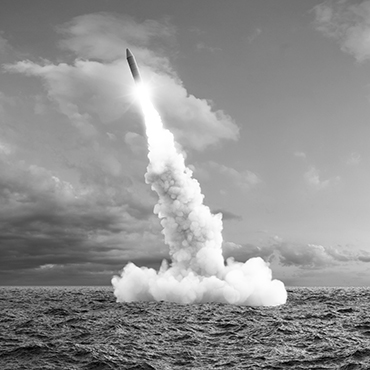AMERICA OFFERS ALTERNATIVES TO RUSSIAN ENERGY...
Earlier this month, Energy Secretary Rick Perry traveled to Eastern Europe on an important mission: to offer up American coal and liquified natural gas as an alternative to Russian exports. With domestic coal consumption in the U.S. decreasing, the Trump administration is now seeking foreign consumers for the commodity while simultaneously trying to improve the energy security of nations who have long depended on the supply of Russian oil and gas. The Department of Energy has confirmed that Secretary Perry's trip included meetings with his counterparts in Ukraine, Poland, Hungary, and the Czech Republic to discuss potential sales, as well as other potential areas of cooperation, including nuclear energy and cyber security. (New York Times, November 1, 2018)
...AS MOSCOW INCREASES OUTPUT
Russia, meanwhile, is working to expand its share of the global energy market. Back in 2016, the Organization of Petroleum Exporting Countries and its partners (OPEC+) agreed to restrict supply of oil on the global market, and many OPEC nations have recently signaled a desire for further production cuts in the coming year. However, data from the Russian Energy Ministry shows that, since June, the country has pushing towards 11.4 million barrels per day – well above the agreed-to supply cuts of 2016 and verging on a level of output not seen since Soviet peak production in 1987. (The Moscow Times, November 2, 2018)
KEEPING PROTESTERS OFF THE STREETS
Organizing opposition to the Kremlin is getting more complicated - and costly. The State Duma has reportedly issued preliminary approval for amendments to the country's Administrative Code which would expand penalties for rallies involving young citizens. The new provisions lay out that the organizers of rallies in which minors are involved will initially face fines of as much as 500,000 rubles ($7,500), up to 100 hours of community service or half a month in jail. For "repeated violations" of the ordinance, the penalties escalate to a maximum of 1,000,000 rubles ($15,000), 200 hours of community service or 30 days behind bars. The penalties rise in severity depending on whether the organizer is a "citizen," an "official" of a group, or a "legal entity" - such as famed opposition activist Alexei Navalny's "Anti-Corruption Foundation." (Current Time, November 6, 2018)
[EDITORS' NOTE: The measure, while ostensibly aimed at preserving the welfare of underage Russians, is clearly intended to ratchet up the costs associated with anti-government protests. Since the organizers of any such rally will not be able to completely monitor attendance so as to restrict participation of minors, the amendments - proposed by members of Russian President Vladimir Putin's "United Russia" party - would mean that any public gathering would be potentially subject to crippling fines and expanded arrests, creating an overall chilling effect.]
THE FSB DIPS ITS TOE INTO THE DRONE DEBATE
Russia's premier intelligence service is seeking to expand its influence into a new arena: drone warfare. According to Alexander Bortnikov, the head of Russia's Federal Security Service (FSB), the proliferation of drone technology represents a real risk to the state, and needs to be more closely controlled. "Terrorists are very skillful at adapting to changing conditions and their use of state-of-the-art scientific and technological innovations are seriously complicating the work of the special services when it comes to responding quickly to emerging threats," the FSB chief told a meeting of law enforcement agency heads in Moscow on November 7th. "We believe that one of the pressing problems now is the growing danger of terrorists using unmanned aerial vehicles (UAVs), both homespun and, even more dangerous, those manufactured professionally."
The answer, according to Bortnikov, is greater Kremlin oversight. "We think it is necessary to promptly embark on setting the legal and regulatory framework on using UAVs in order to prevent and promptly neutralize this threat," he suggested. (Itar-TASS, November 7, 2018)
TOO CLOSE FOR COMFORT
Several days ago, a Russian Sukhoi Su-27 Flanker fighter jet buzzed a U.S. Navy reconnaissance plane over the Black Sea, setting off alarm bells in European capitals and in Washington. The incident marks the latest in a series of increasingly aggressive Russian flights and close encounters of the sort prevalent in the skies over Eastern Europe at the height of the Cold War. The more confrontational Russian posture, experts say, is related to NATO's growing activity in Eastern Europe in response to Russia's ongoing hostilities against Ukraine. "We are poking into seas that are close to Russian territory," notes Mark Cancian of the Center for Strategic & International Studies. "This is the equivalent of the Caribbean for them, so they react." (Navy Times, November 7, 2018)
Want these sent to your inbox?
Subscribe
Russia Reform Monitor No. 2271
Related Categories:
Democracy and Governance; Energy Security; Europe Military; International Economics and Trade; Military Innovation; Europe; Russia


